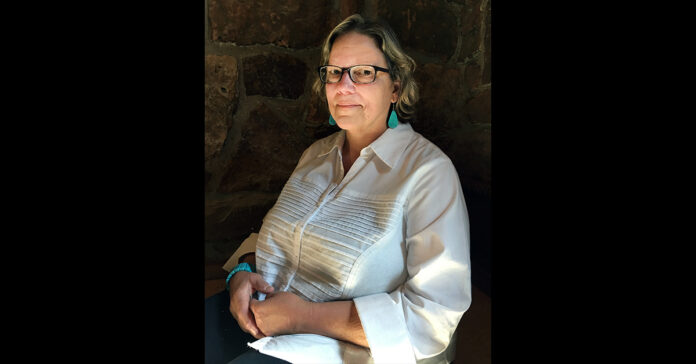We Osages are waiting for the Academy Awards, living our prize-winning “Killers of the Flower Moon” ascent. Scott George has been nominated for Best Original Song and Lily Gladstone for Best Actress. Native fashions and arts of all kinds are being celebrated.
Saturday, I went to the Chinook Nation’s Winter Gathering at Clatsop Community College high above the mouth of the Columbia River, where a ring of blue coastal hills surrounded us. The Chinook call Astoria, Fort Chautsh, for Fort George, named by the British Hudson Bay Company chartered by the British Crown before Americans claimed the area.
When the Chinook lived up and down the Lower Columbia River, the Clatsop and Cathlamet on the southern shore and the Willapa, Lower Chinook and Wahkiakum on the northern, they would gather in winter with other tribes to tell stories, carry on tribal business, and hold give aways. “Potlatches, really,” my friend Jo Blair says, alluding to the history of repression of Native culture that is so familiar.
Spending the day in the natural rhythm of tribes visiting each other is so different from modern American life. We spoke in order of distance come. First, a canoe family of indigenes from the Caribbean, and then I spoke in Osage to introduce myself and express my gratitude at living in their beautiful country—Thank you, 𐓏𐒰𐒼𐓂͘𐓒𐒷 Tracey Moore and my Osage teachers! A Ponca relative and folks from Grande Ronde spoke. Everyone received gifts which reminded me of families carrying blankets and bundles under the arbor, the deep instinct to share, express appreciation. Families were celebrating their relationships, sharing news of the canoe projects upcoming, legal efforts underway.
At lunch, I spoke with folks who know these mountains and valleys off the estuary I’ve come to call home equally well. It is such a gift to be seen, to live long enough in one place to know a region, your land, its animal and plant life in all seasons and weather. And it’s extra special when your community is small like our tribal nations or rural communities.
I have wanted to know the Chinook names of these lands, plants and animals since I came here to live. Now, courtesy of Covid, there are online Chinook wawa resources making that early trade language accessible. I learn mus mus for the white-tailed deer that fill our front yard. Moo’-lock for the elk in the refuge and up the valleys. My tum’-tum, my heart, is full.
The Chinook are pushing hard for federal recognition, and there’s local political support from the Town of Cathlamet and Wahkiakum County where I live. They’re lobbying the state and federal government, but they’re not waiting for recognition to form partnerships with local agencies. They have purchased ancestral land at Tansy Point, the site where their treaties were signed, and there’s potential for the return of the 33-acre former Naselle Youth Camp, a juvenile detention center not in use. It’s so good to imagine the forest surrounding a traditional plank house on Chinook ground.
The Lower Chinook signed Anson Dart treaties with the United States at Tansy Point in 1851. But in the kind of bureaucratic/political history so familiar, the federal government has reneged, not ratified and reversed decisions. The Chinook hired lawyers in 1890 to deal with land being taken without compensation. Ultimately the tribe was acknowledged as heirs to Chinook and Clatsop lands. The Chinook won that case in 1970, but the monies were not disbursed, due to disagreements about receiving 1851 values for valuable lands at the mouth of the river, an international shipping route. Reading the history of allotments forced on Chinook and Quinault on the Olympic Peninsula, the BIA mismanagement of tribal resources and its complicity with timber companies is as stomach-turningly familiar as our own political and fiduciary debacles.
“Killers of the Flower Moon” has been re-released in theaters. It’s a movie for the big screen with our Wah Zha Zhe people, our clothing, language, our song and the dance spiraling into space. Hopefully, some of the energy that“Killers of the Flower Moon” generates will translate into non-Natives in all of our communities taking our sovereignty seriously.
Please read about the Chinook’s battle for the restoration of their tribal sovereignty: https://chinooknation.org/recognition/ and take action by signing their petition and contacting legislators: https://chinookjustice.org/petition/#takeAction



